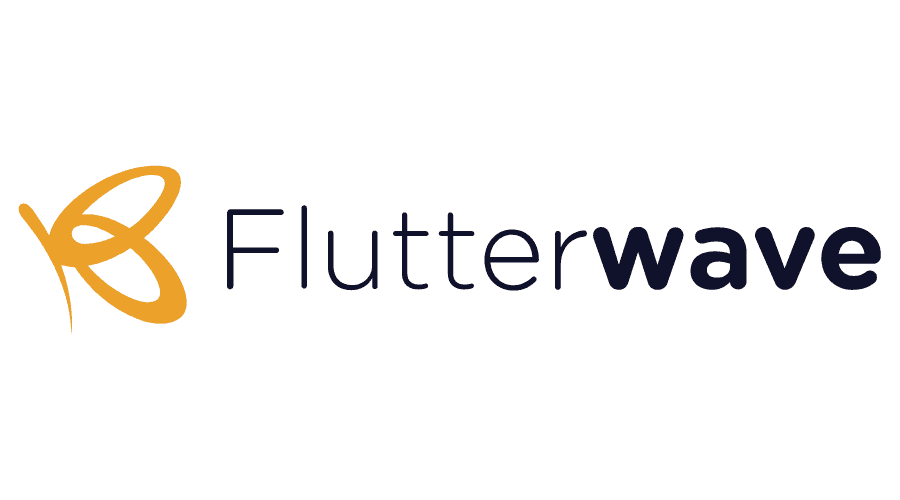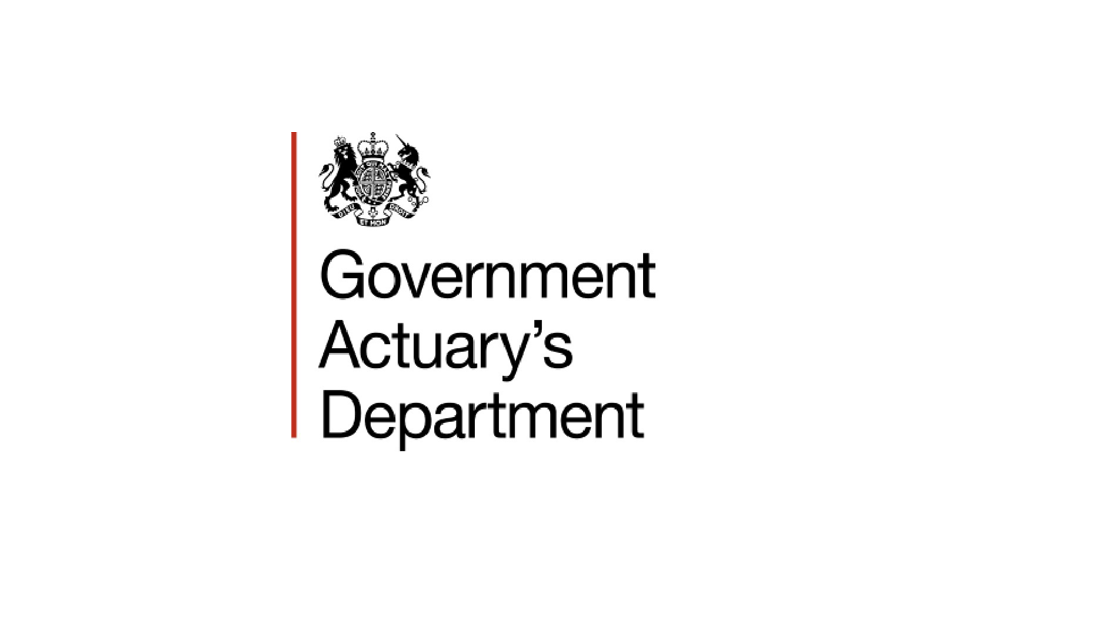Published
- 06:00 am

The acquisition aims to strengthen and drive rapid growth and bolster the platform’s payments checkout process
Flutterwave, Africa’s leading payments technology company, has acquired Disha, a platform that enables digital creators to curate, sell digital content, portfolios and receive payments from their audience worldwide. Flutterwave’s acquisition aims to improve the process of digital content creation for Disha users, enabling them to earn value for their creativity using the platform’s new payouts and collections solution. Disha has acquired over 20,000 users organically over 12 months.
By enabling creators to receive payments from anyone, anywhere in the world, this acquisition is expected to further grow the estimated over $100bn global creator economy. Creators on Disha who already monitor performance with the platform’s analytics feature, embed social media pages, add call-to-action buttons, and more are expected to find it easier to access global markets.
Young people all over the world are seeking better ways to earn more value from their creativity. In a report by NDTV, Non-Fungible Tokens (NFTs), a new way of owning and selling digital arts, surged past $10bn in Q3 of 2021. This shows the large appetite of young people to create, own, sell or share various digital arts, creatives, and assets to a global audience— an industry Disha is well positioned to support in the near future.
Flutterwave’s acquisition of Disha will help grow its base by providing users with the ability to make, receive and withdraw money from their Disha accounts in over 150 currencies and 34 countries across the world.
Commenting on the news, Olugbenga GB Agboola, Founder and Chief Executive Officer of Flutterwave said: “At Flutterwave, we care about the creators on Disha who over the years have found a home for their craft. That is why we’re making this huge investment to continue to support their growth. Beyond Disha users, this is an exciting effort to equip the global creator community of about 50m individuals, with innovative tools to grow their craft. We are thrilled to be supporting Disha to provide new opportunities for freelancers and creators to showcase and receive value for their creativity, across the world.”
Commenting on the News, Rufus Oyemade, Software and Architectural Lead, Disha said: “Flutterwave’s acquisition will accelerate our path to being an important toolset for creators to showcase and get paid for their work from all over the world. The new payment feature will support creators who will in turn become key players in the global creator economy. Disha earlier used a US-based payment partner for collections, but now that we’re part of Flutterwave, it’s amazing how we can provide excellent global services from Africa. We’re excited to continue to provide creators and freelancers with tools that add value to their craft. We’ll be focusing on features and integrations that help creators easily schedule meetings and exhibitions, build sustainable income through subscriptions and leverage emerging technologies in the creator space.”
“I believe this acquisition will bring about only positive changes. With increased resources, expertise and customer service, Flutterwave will certainly make Disha stronger and more competitive in the market.” Evans Akanno, Co-founder and Former CEO of Disha said.
Disha was Co-founded by Evans Akanno (ex CEO), Rufus Oyemade (ex CTO) and Blessing Abeng (ex CMO). Disha will continue to maintain its distinct and unique brand identity and operations, despite the acquisition by Flutterwave. Disha had earlier in February 2021, announced it was closing services.
Related News

Duncan Cooper
Senior Market Strategist & Trading Mentor at ACY
Overview: see more
- 03:00 am

With the financial services sector in the middle of budgeting season, retail banks and building societies need to take a fresh look at all of their vendor costs – especially those they input without a second thought. With a possible £6bn in savings up for grabs, time is of the essence to secure budgetary success not only for the year ahead, but beyond.
David Royle, Managing Director of Financial Services Consulting at SRM Europe, comments: “There are tough economic times ahead for the financial services sector, as we collectively adjust and recover from the effects of the Covid pandemic and accommodate an irreversible shift in customer behaviours. Whilst many UK banks and building societies continue to focus on reduced headcounts and smaller branch estates as a means of balancing the books, they miss a major opportunity.
“Too often, management teams and boards simply plug vendor costs into their annual budgets and forecasts without a second thought, not questioning whether they can improve the contract until the renewal looms. Our experience suggests that in most cases, they can.”
Whilst a common business practice in the United States, vendor contract optimisation is infrequently adopted in the UK and as a result, there is a gross knowledge imbalance between provider and most banks and building societies. Third-party vendors in technology, payments, and operations typically have dedicated teams singularly focused on negotiating and renegotiating their contracts with banks to maximise revenue. Conversely, UK banks typically review their contracts only 6-12 months before expiry, resulting in the associated costs being taken as given and transferred to the following year’s budget with barely a second thought.
Royle continues: “Such infrequent challenge to existing vendor contracts leaves banks with little comparative data from which to negotiate better deals. Internationally we have been optimising vendor contracts for clients for nearly 30 years, and that knowledge (and data) is power. Over the years we have utilised the amassed contract data to realise savings in excess of $5bn for thousands of clients.
“We’ve assessed that retail banks and building societies here in the UK could collectively enjoy savings in the region of £6bn simply by adopting a similar approach to regular contract review and renegotiation. This does, however, require those financial institutions to take action and we believe that simply asking five questions at this critical budgeting time could make all the difference.”
The five simple questions that SRM Europe recommends banks and building societies ask themselves during their budgeting and forecasting process are as follows:
1. Are we getting the best vendor deals in the market? A contract that was competitive when signed isn’t necessarily any more given that market pricing and conditions will have changed, as will an institution’s own needs.
2. Can we renegotiate existing contracts? Too often, it is assumed that a long-term contract is set in stone until its renewal date, but this simply isn’t the case, and many vendors will renegotiate early to keep customers over the longer term.
3. What contracts are expiring in the next 12-36 months? It can be time-consuming to switch vendors, and they know it. To be in the best negotiating position, renegotiations should start two or more years in advance.
4. Do we have a reliable view of the market price? Do you know what price is being charged to other organisations for a comparable product or service?
5. When was the last time our bills were audited? Unlike the regulatory requirement to carry out risk assessments on how vendors would handle breaches and the like, there is limited regulatory requirement to audit vendor bills and costs charged. Many are error strewn and savings and service optimisations consequently remain unrealised.
Royle concludes: “Asking these questions will help UK retail banks and building societies identify existing contracts that may no longer be fit for purpose and that reviewing them may reveal significant savings and efficiencies.
“Renegotiating vendor costs can widen narrowing margins and relax budget tensions. That’s surely an opportunity not to be missed!”
Related News
- 02:00 am

Identity platform grew eightfold in the UK compared to previous year, continues to see increasing demand for its solutions.
As cyber crime soars, IDnow, a leading platform-as-a-service ID Verification provider, has grown eightfold year-over-year in the UK market.
IDnow’s UK growth is aligned with the global demand for its solutions. The firm is seeing substantial interest across the world, with more and more companies deciding to switch to fully digital application processes.
IDnow has released key findings from its latest research Report* “Trend Report: Identity Fraud 2021”. These include:
|
IDnow is now concentrating on sharpening its technology and further scaling up its UK team as the rising demand for KYC (Know Your Customer) solutions across various industries in the UK grows. IDnow has established two locations since its entry into the UK market in 2019: the UK headquarters in London, and an office in Manchester.
IDnow has expanded its role far beyond offering specific identity verification products and has become an overarching platform for digital identities with several million transactions per year, used by over 900 customers worldwide.
In 2021, IDnow acquired the French market leader for identity technology, ARIADNEXT, and the German based company, identity Trust Management AG. Together the group is able to offer its customers one of the broadest identification solutions through a single, integrated platform.
The way identity verification is carried out in Europe has also changed drastically in recent years. Newly introduced or adapted regulations and increased user expectations for a smooth onboarding experience of digital products have tightened the market conditions for companies. Only those who offer secure, seamless and regulation-compliant identity verification as part of their user journey will win new users and exclude fraudsters, while entering new markets with different use cases and legal requirements.
Andreas Bodczek, CEO of IDnow, comments: “We’re seeing a significant rise in demand for our services from the UK market this year. The pandemic pushed many industries into accelerating their digitisation, and as part of that, consumers now expect a much quicker and fully digital onboarding process. The knock-on effect of that has been an increase in cybercrime making security more important than ever and meaning businesses have a heightened focus on delivering a safe and secure process for customers.”
Related News
- 05:00 am

Spice Money, India’s leading rural FinTech announced that it has been awarded the Great Place to Work Certification which is one of the most definitive ‘employer-of-choice’ recognitions. Spice Money’s incremental efforts towards creating a transparent work culture along with its key focus on learning & development initiatives have played a major role in making Spice Money a ‘Great Place to Work’. Through the certification, Spice Money is moving one step closer towards becoming the most admired Rural FinTech brand in the country.
On earning the GPTW certification, Atul Tiwari, Head - HR at Spice Money said, “We are extremely delighted to be certified by the Great Place to Work. This certification speaks volumes about our value driven culture and our employee first approach. At Spice Money, we strongly believe that an organisation is a true reflection of its leadership and the employees. We are constantly working towards building a credible and transparent work environment that accelerates the growth and development of each individual. For us as an organisation, we propagate the culture of celebrating both success and failures because more than the destination, it is the journey which is equally important to us. We constantly provide key learning opportunities and welcome creative ideas to empower our people.”
Spice Money began its journey with the mission to financially & digitally empower rural citizens of the country. With its vast network of over 7 Lakh Adhikaris across 18,500+ pincodes and diverse product offerings, Spice Money has witnessed stellar growth in FY21. Going forward, the company will continue to grow rapidly while introducing new lines of business and product offerings that enhance financial inclusion.
Recently, Spice Money has also been awarded Excellence in Neo Banking at the 2nd ASSOCHAM Annual Conclave FinTech & Digital Payments – 2021 and Best BFSI Brands 2021’ by The Economic Times. These coveted achievements are a testimony towards Spice Money attaining its vision of becoming the most admired brand for rural India.
Great Place to Work® is the global authority on workplace culture. Since 1992, they have surveyed more than 100 million employees worldwide and used those deep insights to define what makes a great workplace: trust. Their employee survey platform empowers leaders with the feedback, real-time reporting, and insights they need to make strategic people decisions. The Institute serves businesses, non-profits and government agencies in more than 60 countries and has conducted pioneering research on the characteristics of great workplaces for over three decades.
Related News
- 02:00 am

Artificial Intelligence Journey, Sber’s international three-day online conference on artificial intelligence (AI), opens today, November 10. Held by Sber in collaboration with top Russian and foreign technology companies over three days, the conference is one of the key events of the Year of Science and Technology in Russia.
The conference will be opened by Alexander Vedyakhin, first deputy chairman of the Sberbank Executive Board, and Maxim Oreshkin, aide to the President of the Russian Federation. The first day of the conference will be dedicated to the application of AI in sustainable development for society, state, and business, as well as key issues on the ESG agenda.
Alexander Vedyakhin, first deputy chairman of the executive board, Sberbank:
“Our conference, AI Journey, the foundations of which we laid in 2016, has quickly evolved from a national event to a global one. Each year we raise the bar higher and higher, striving to attract the most competent experts: professionals who create technology that transforms the world, as well as those who fully understand these changes, caution us against mistakes, and predict future developments, including in the context of ESG. I strongly believe that this is one of the most important platforms for open dialogue of our era, because AI’s influence on all aspects of our lives will only increase, and this automatically raises a host of issues that we will only be able to resolve through international discussion.”
The first event on the agenda will be the panel discussion on “The Strategic Role and Economic Potential of Technology Companies in Solving ESG and Sustainable Development Tasks,” moderated by Alexander Vedyakhin. The participants will include Tom Gruber, the co-founder, CTO, and head of design for the team that created Siri, founder and former head of the Advanced Development Group at Apple, and founder of Humanistic AI; Shukri Dabagi, SAS CEMEA regional vice president; Ambarish Mitra, co founder of Greyparrot and founder and chief product officer at Blippar; and Andrey Chernogorov, founder and CEO of Bidzaar.
The conference will also feature a panel session titled “AI and ESG: Solutions for Businesses” with the participation of the following experts: Daniel Zhou, Eurasia Region president at Huawei; Ralph Haupter, president of EMEA at Microsoft; Anton Kosach, managing director and partner at Boston Consulting Group (BCG); and Olga Uskova, CEO of Cognitive Pilot. Moderating the discussion will be Elina Tikhonova, RBC television presenter.
In keynote talks and workshops, experts and entrepreneurs from budding startups will discuss the role of AI in tackling ESG tasks, discuss how high technology contributes to the attainment of sustainable development goals facing mankind, present their ESG designs, and share their opinions on the future and economic potential of AI development in areas such as medicine, finance, industry, retail, and more. In addition, an AI ethics forum titled “Laws of the Future 2.0” is scheduled to take place.
On the second day of the conference, which will be opened by Alexander Vedyakhin and Deputy Prime Minister Dmitry Chernyshenko, experts will discuss the scientific aspects of AI. The focus will be on the development of artificial general intelligence
(AGI), natural language processing (NLP), computer vision, recommender systems, automated machine learning (AutoML), speech analytics, and other areas of knowledge. David Rafalovsky, executive vice president of Sberbank, CTO of Sber, and head of Technology, will present Sber’s new technological products. AI Journey Junior, a conference for middle and high school students interested in data science and AI technology, will be held on the third day.
The conference will also feature an awards ceremony for the winners and runners-up of AI Journey Contest, an international online DS/AI competition for adults, and the international artificial intelligence contest for children organized by Sber and the Artificial Intelligence Alliance.
The Artificial Intelligence Research Institute (AIRI) will also present the initial results of its projects. Jürgen Schmidhuber, chief scientific advisor at AIRI and scientific director at the Dalle Molle Institute for Artificial Intelligence (IDSIA) (Switzerland), will speak at AI Journey, as usual.
The online conference will bring together global AI experts from academic institutions, international organizations, and the business sector, including: Tomáš Mikolov, senior researcher at CIIRC CTU; Michael Bronstein, professor at Imperial College London and USI Lugano and head of Graph ML at Twitter; Marc Hamilton, vice president at NVIDIA; Catherine Mohr, president of the Intuitive Foundation; Somdeb Majumdar, machine learning research lead at Intel AI Lab; Stephen Brobst, CTO at Teradata; Anshumali Shrivastava, associate professor at Rice University and founder of ThirdAI Corp.; and more.
Last year’s AI Journey was the world’s largest AI and DS event, with around 30,000 specialists from over 100 countries taking part in the conference. The conference featured 225 speakers, and their presentations garnered over 30 million views.
Related News
- 04:00 am

MFS Africa, Africa’s largest digital payments network, has raised US$100 million through an equity and debt financing round. The fundraising marks another milestone in MFS Africa’s expansion, following a series of acquisitions and investments in other African fintechs, including the recently announced acquisition of Baxi in Nigeria.
The new investor, AfricInvest FIVE, is one of the most experienced private equity investors in the continent and co-led the round with existing investors Goodwell Investments and LUN Partners Group (“LUN Partners”). CommerzVentures, Allan Gray Ventures, Endeavor Catalyst and Endeavor Harvest also joined the round as new investors, while ShoreCap III returned as an existing investor with other funds. Providers of debt financing included Lendable and Norsad.
MFS Africa’s vision is to make borders matter less, which it enables through interoperability across payments schemes, borders and currencies. Over the last year, MFS Africa has accelerated its expansion efforts across Africa. The company has opened new offices in Abidjan, Kampala, Kinshasa, Nairobi and Lagos, in addition to establishing London as its new headquarters. MFS Africa recently signed an agreement to acquire Baxi, a leading super-agent in Nigeria, and plans to build Baxi into a key node, allowing regional payments into and from Nigeria.
MFS Africa is continuing to expand its network and will be opening additional regional offices in key African markets, as well as in the USA and China. The new funding will enable MFS Africa to hire additional talent in Africa and globally to support its exponential growth.
Furthermore, part of the new funding has been earmarked to continue strengthening the company’s Governance, Risks and Compliance (GRC) functions as well as its treasury and liquidity pool. MFS Africa will be continuing to invest in fintechs across the African payment ecosystem,
Dare Okoudjou, Founder and CEO of MFS Africa, said: “This round of funding marks the beginning of the next phase in our growth. We greatly appreciate the renewed and continued confidence in us by our longstanding investors LUN Partners, Goodwell Investments, ShoreCap III and others. We are also delighted to welcome our new investors AfricInvest, CommerzVentures, Endeavor Catalyst and Endeavor Harvest on board. This new fundraising round further demonstrates our commitment and the scale of our ambitions. For our clients across Africa and beyond, this is also a validation of the choice they have made to partner with us in building a network of networks that make instant cross-border payments as simple as making a phone call. We look forward to continuing to work with them to expand and deepen that network in the years to come.”
The pan-African investment platform, AfricInvest, has in-depth expertise in the African financial sector and a significant footprint across the continent, having made over 180 investments across more than 25 markets. As an established and highly respected private equity firm it provides MFS Africa with access to the considerable expertise of its African growth strategy and its advocacy efforts around the inclusion of less developed but high potential markets.
The series also saw Frankfurt-based fintech specialist investor CommerzVentures make its first investment in Africa. This partnership offers MFS Africa closer links with EU financial institutions and helps strengthen the company’s financial services capabilities and offerings.
Discussing the investment, Julius Tichelaar, Partner at AfricInvest FIVE said: “MFS Africa provides broad access to a large range of payment services for individuals and companies on the African continent, including remittance and trade-related financial services. This resonates well with AfricInvest FIVE’s financial inclusion strategy. Cross-border payments remain an important challenge in many African markets today and MFS Africa is uniquely positioned to confront this. We are excited to join MFS Africa’s world-class management team on its mission and to support its growth journey”.
Wim van der Beek, Managing Partner at Goodwell Investments says: “We made our first investment in MFS Africa four years ago, and throughout this time their team have consistently delivered on their plans. Over the years they have built a powerful platform, a strong network of partners and a world-class passionate and diverse organisation. We are delighted to co-lead their Series-C round together with AfricInvest FIVE. We look forward to continuing to support MFS Africa in their next stage of growth, delivering on their vision to deliver affordable payments and other financial services across Africa and beyond."
Peilung Li, Chairman of LUN Partners Group, added, “We are very proud to be a partner to Dare and MFS Africa and have continuously supported the Company through multiple rounds of investment since we led the Series-B round. We have also been working closely with MFS Africa to build cross-border payment gateways between Africa and China and have supported the Company through several transformative M&A transactions. I am excited to see MFS Africa continue to build its financial ecosystem and in becoming a dominant player in the region.”
In 2010, MFS Africa forecast that mobile money wallets would be the most dominant digital wallet in Africa. Today, its hub connects over 320 million mobile money wallets. Through its network of over 180 mobile money schemes, banks, money transfer operators, and over 250 global enterprises, millions of Africans can exchange value with each other and the world.
Related News

Duncan Cooper
Senior Market Strategist & Trading Mentor at ACY
https://youtu.be/SqdPGa4ZfkE Overview: see more
- 02:00 am

The Government Actuary's Department (GaD) has been hit by an average of 24,740 malicious emails a month. The data, obtained and analysed by a Parliament Street think tank via a Freedom of Information (FoI) act request, revealed that a total of 74,221 malicious emails, including phishing, malware and spam had been sent to the GaD over July, August and September 2021.
The Government Actuary’s Department provides actuarial solutions including risk analysis, modelling and advice to support the UK public sector. GaD has about 200 employees across two offices - London and Edinburgh - of whom around 165 are actuaries and analysts.
The majority of threats received by GaD were spam emails, with 38,653 attacks. In the three-month period, there was also 35,497 phishing attacks and 71 malware or virus emails in circulation.
The total amount of phishing attacks decreased over the three-month period. In July, a total of 15,233 phishing attacks came through. In August, this number reduced to 12,111 attacks and in September, the figure lessened again, to 8,153 phishing attacks.
On average, there were 12,884 spam emails at GaD across the three months. These emails could download viruses onto staff computers, and steal passwords and personal information.
The government is investing heavily in its IT infrastructure — to the tune of almost five billion pounds annually. The Department for Business, Energy & Industrial Strategy (BEIS) alone spent almost two million pounds on laptops and smartphones last year. Some 1,216 mobiles were issued to departmental staff in 2020, with 1,557 computers or laptops also added to circulation.
Tim Sadler, CEO and co-founder of Tessian comments:
"The number of phishing attacks organisations have to deal with is relentless. Phishing is one of the easiest ways for cybercriminals to hack into a company - and they just need one distracted or tired employee to miss the cues of an attack in order to be successful.
"While it's encouraging to see that the government is investing heavily in IT infrastructure to support workforces, they must also address whether robust security measures are in place to protect their employees - i.e. the people actually working from the devices. Failure to do so means that the risk of security incidents caused by human error - like falling for a phishing scam - will only continue to rise."
Related News

Michael Moran
Senior Currency Strategist at ACY
Stocks Fall; Just Another Day for You and Me in FX Land see more









